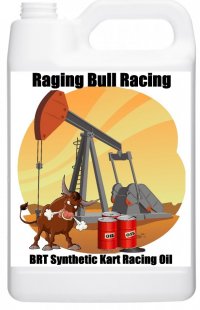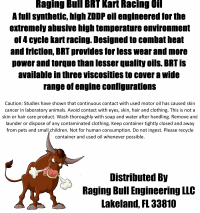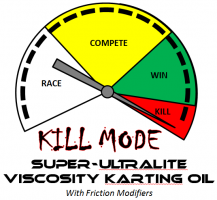Eastman 2380 Turbine oil. Great stuff, run it straight up and you do not need to change it but once a night even running multiple classes. You can strain it and reuse it . Oil will resist breaking down up to 900 degrees and has outstanding film strength. If it's good enough for $100,000 engines it should be fine for clones. It also makes a lot of power.
Ran an unrestricted clone 3 weekends, two classes. That's 60 laps practice, 90 heat race laps and 120 main event laps without changing. Engine had no wear, strained the oil and ran it 3 more weeks with almost no wear. Always ran 14oz.
Ran an unrestricted clone 3 weekends, two classes. That's 60 laps practice, 90 heat race laps and 120 main event laps without changing. Engine had no wear, strained the oil and ran it 3 more weeks with almost no wear. Always ran 14oz.



